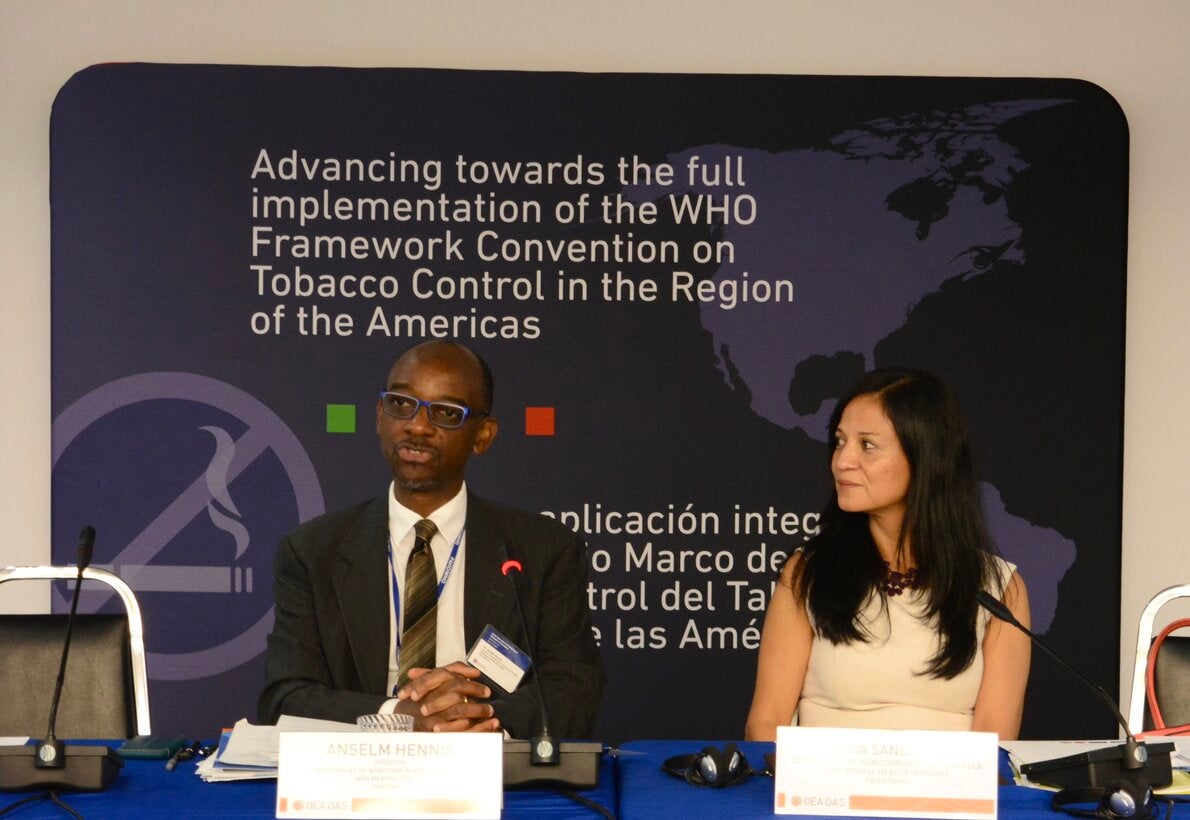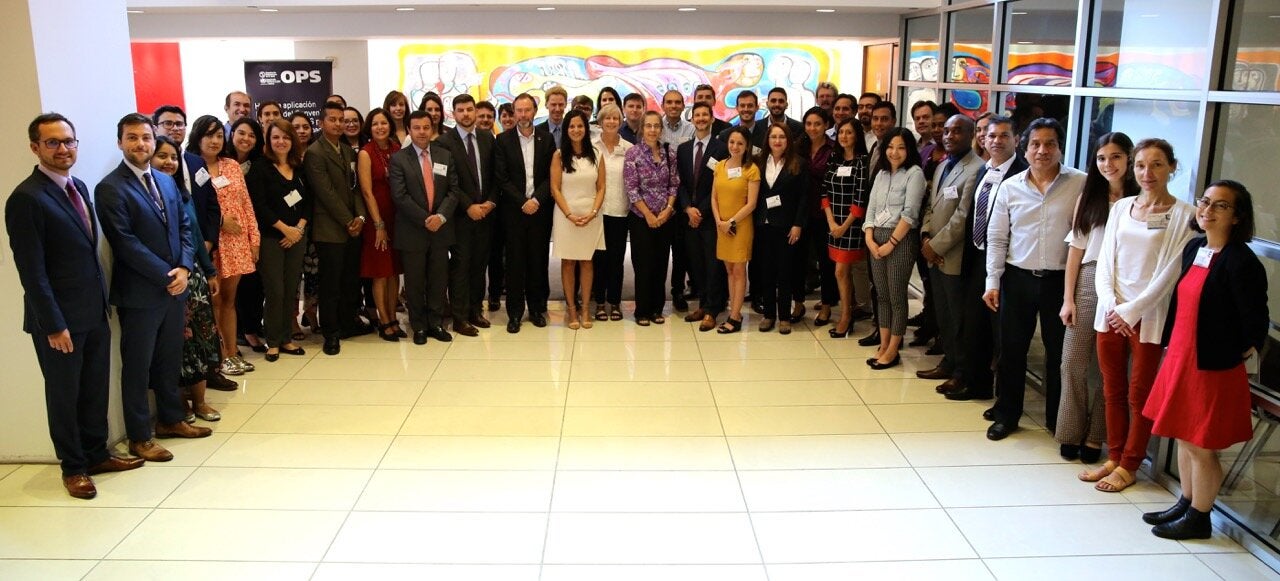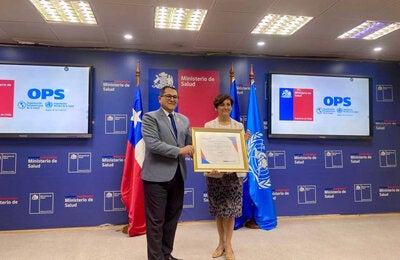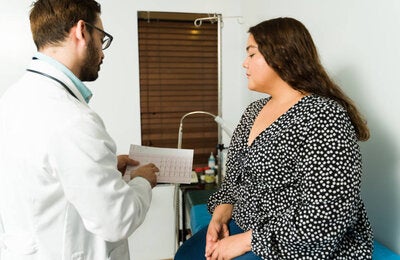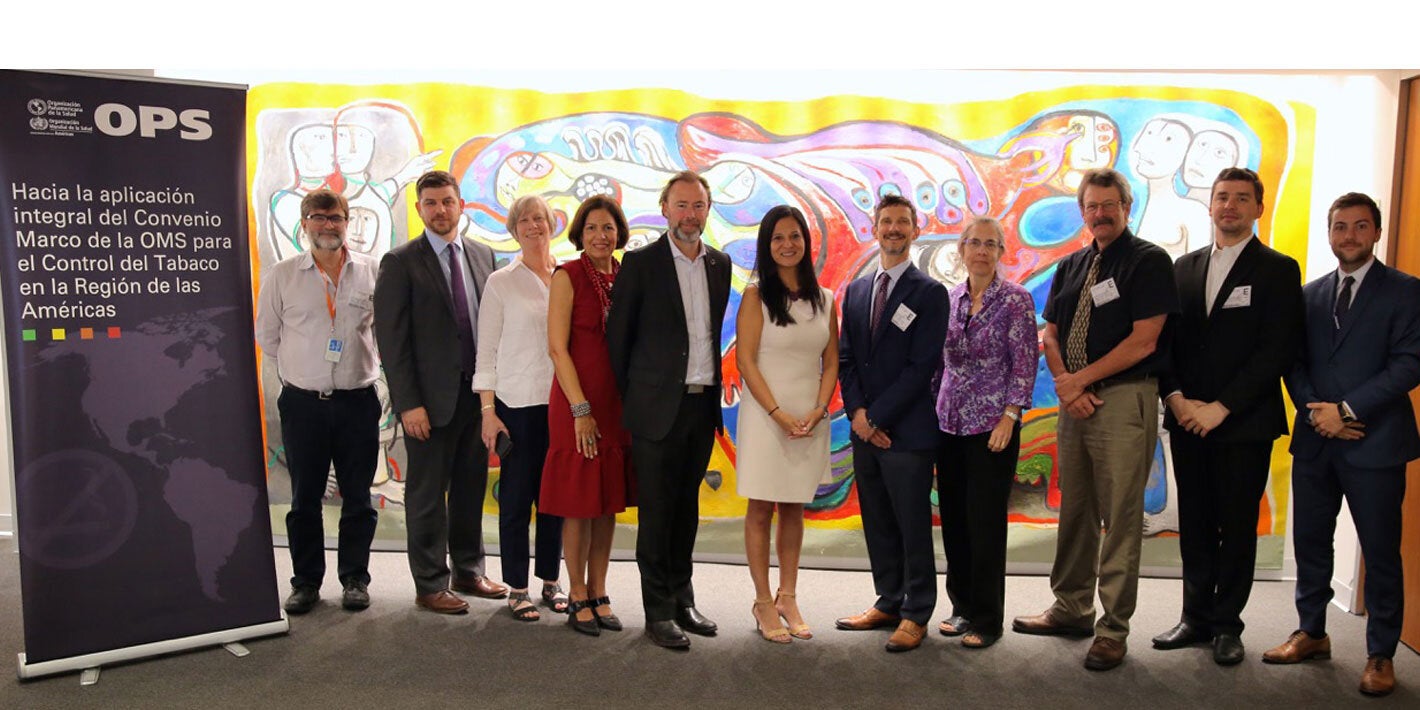
Washington, DC, 9 July 2019 (PAHO) - From 9 to 11 July 2019, representatives from Ministries of Finance working on tobacco tax policy design and from Ministries of Health working on tobacco control, from 11 Latin American and Caribbean countries, as well as researchers working on the economics of tobacco control in the Region, participate in a workshop to foster increases in tobacco taxes as a tool to reduce the demand for tobacco products. This workshop is also addressing the issue of measuring illicit trade of tobacco products.
Tobacco use is responsible for more than 1 million deaths annually in the Region of the Americas. It is the only risk factor common to all four main noncommunicable diseases (cancers, cardiovascular diseases, chronic respiratory diseases, and diabetes). Increasing tobacco taxation in order to reduce the affordability of tobacco products is the single most cost-effective measure to reduce tobacco consumption. However, it remains underutilized in the Region.
This workshop named “Simulating tobacco tax increases and measuring illicit trade of tobacco products in Latin America and the Caribbean” is being organized jointly by the Pan American Health Organization (PAHO), the WHO Framework Convention on Tobacco Control (WHO FCTC) Secretariat, American Cancer Society, the Institute for Global Tobacco Control at Johns Hopkins University, Campaign for Tobacco Free Kids, the Institute for Health Research and Policy at the University of Illinois at Chicago and the International Union Against Tuberculosis and Lung Disease.
Several intergovernmental organizations are represented, such as the International Monetary Fund, the World Bank Group, and the InterAmerican Development Bank.
Increasing tobacco taxes in the Region
Increasing excise taxes and prices of tobacco products is one of the 16 most cost-effective interventions recommended by the WHO Global Action Plan for the prevention and control of noncommunicable diseases 2013-2020 and an important part of the Strategy and Plan of Action to Strengthen Tobacco Control in the Region of the Americas 2018-2022. In addition, Article 6 of the WHO Framework Convention on Tobacco Control (WHO FCTC) – international treaty which entered in force in 2005 and has been ratified by 181 countries around the world (30 in the Region of the Americas) – stipulates that the Parties to this treaty recognize “that price and tax measures are an effective and important means of reducing tobacco consumption by various segments of the population, in particular, young persons”.
Although several countries in the Region have taken important steps to make tobacco products less affordable, increasing tobacco taxes remains one of the WHO FCTC tobacco control measures on which the least progress has been made since 2008. As of 2016, only two countries in the Region, Argentina and Chile, imposed consumption taxes on cigarettes accounting for more than 75% of the retail sale price, which represents the benchmark for the application of the measure at the highest level.
This workshop intends to review the WHO FCTC and other global and regional mandates and commitments adopted by countries on tobacco taxation. In addition, the objective is to familiarize participants with the applied use of available tools and models, such as the WHO Tax Simulation (TaXSim) model, to simulate the impact of tobacco tax increases on revenue and consumption. Finally, by convening government officials from both ministries of health and finance, the overall goal is to promote a whole-government approach to tobacco tax policy design.
Independent scientific studies of the size of the illicit trade of tobacco products to counterargue the tobacco industry
Increase in the illicit trade of tobacco products is often used as an argument by the tobacco industry to dissuade policymakers from strengthening tobacco control measures, and, in particular, increasing taxes on tobacco products. However, other factors have an equal or greater role in explaining the illicit trade of tobacco products. The U.S. National Cancer Institute (NCI) Tobacco Control Monograph 21 in 2016, published by NCI and WHO, explains that “in many countries, factors such as high levels of corruption, lack of commitment to addressing illicit trade, and ineffective customs and tax administration, have an equal or greater role in explaining [the illicit trade of tobacco products] than do product tax and price differentials”. In addition, independent scientific studies in the Region and around the world have shown that the estimates from the industry of the size of the illicit trade of tobacco products are overestimated.
Illicit trade of tobacco products poses a serious threat to public health because it increases access to – often cheaper – tobacco products, thus fueling the tobacco epidemic and undermining tobacco control policies. It also causes substantial losses in government revenues.
In 2018, the Protocol to Eliminate Illicit Trade in Tobacco Products entered into force with the objective with the objective of eliminating all forms of illicit trade in tobacco products through a package of measures to be taken by countries acting in cooperation with each other. As of today, 53 countries around the world have ratifies this international treaty. However, only 6 countries have ratified this treaty in the Region.
This workshop intends to review the Protocol and the commitments adopted by countries to combat the illicit trade of tobacco products. In addition, the objective is to present available evidence at the global and regional levels and methodologies to measure illicit trade of tobacco products in order to foster the use of independent scientific studies.

